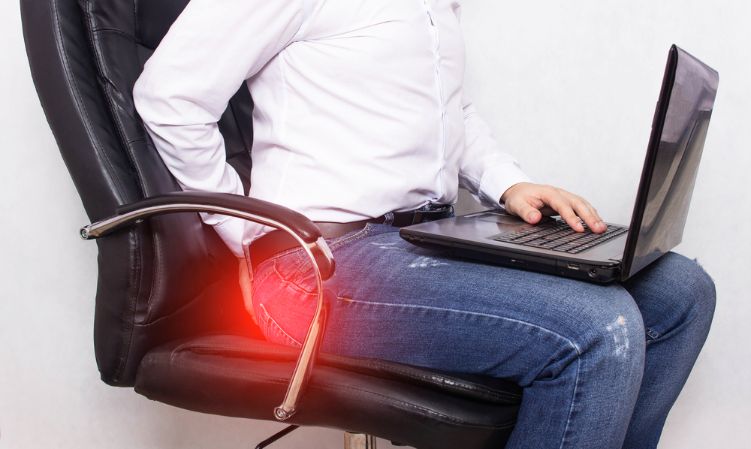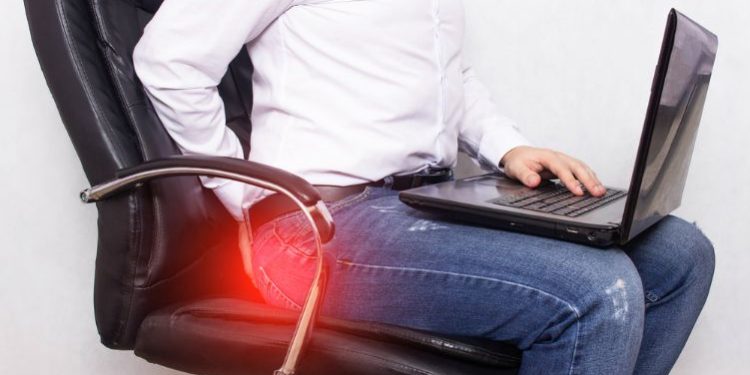Hemorrhoids are swollen blood vessels near your anus and lower rectum, the bottom section of your colon (large intestine). These vessels may expand, become thin and bleed. They can also protrude, or “pop out,” during a bowel movement. They can cause pain, itching and bleeding.
Symptoms vary depending on the type of hemorrhoid. Internal hemorrhoids typically feel softer and are less painful. Some symptoms include a feeling of fullness or discomfort, bright red blood in the toilet bowl, mucus discharge and rectal bleeding. External hemorrhoids are usually painless unless a blood clot forms and they get very swollen.
There are several treatment options to relieve swollen hemorrhoids. At-home treatments include sitz baths and ointments or topical creams made for hemorrhoids. These simple measures are easy to follow and often give short-term relief from pain and itching, says Alex Ky, M.D., a proctologist and professor of surgery at Mount Sinai in New York City.
Soaking in a warm bath is also a helpful treatment. This is a time-honored therapy that uses hot or warm water to relax the clenching muscle in your anus. Taking a warm bath for 10 to 15 minutes each day can help reduce swelling and minimize the pain of external hemorrhoids.
Icing your anus is another way to relieve itching and swelling. Using an ice pack or cold compress on your anus for 10 minutes three times a day can soothe and reduce the itching, suggests Dr. Thomas. You should wrap an ice pack in a paper towel or cloth before applying it.

Applying a 1% hydrocortisone cream on the outside of your anus for about a week can also temporarily ease itching and discomfort, though it can thin the skin. Don’t use these creams for longer than a week unless your doctor says it’s OK.
Talking to your doctor can make it easier to diagnose and treat your hemorrhoids. He or she will review your bowel habits and do a physical exam of your anus and rectum. They may also suggest suppositories, enemas or a topical hemorrhoid cream to treat your symptoms.
Avoiding straining and eating a high-fiber diet can also relieve symptoms of hemorrhoids. These tips are simple, but they can make a huge difference in your quality of life.
In addition, changing your bowel habits can help prevent hemorrhoids from developing in the first place. For example, drinking more fluids, avoiding alcohol, smoking and taking stool softeners can all help decrease pressure on the anus and rectum.
If at-home treatments aren’t working or if hemorrhoids are very large, you might need to see a colorectal specialist, such as a gastroenterologist. The specialist will look at your rectum and can determine what’s causing your hemorrhoids to flare up and whether there are other causes of the bleeding, such as an abdominal hernia or appendicitis, says Dr. Langenfeld.
Surgical treatments are available to remove hemorrhoids that cause moderate to severe symptoms. This is usually done in a hospital or outpatient setting, but sometimes a surgeon will come to your home. These procedures can be a lot more expensive than other office-based treatments, but they have been known to give long-lasting results and can alleviate many of the symptoms associated with hemorrhoids.









